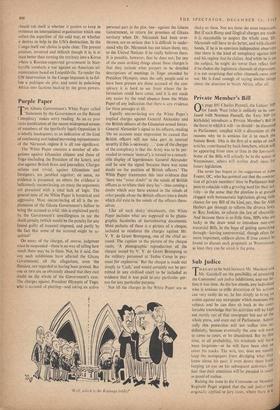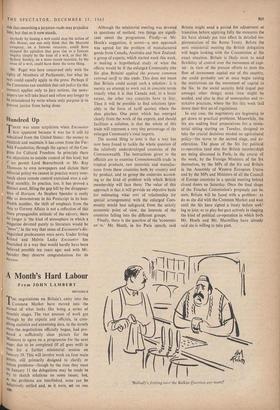Sub Judice.
TM.KS are to be held between Mr. Macleod and Mr. Gaitskell on the possibility of amending the Commons' sub judice inhibitions; and not be- fore it was time. As the law stands, any 'individual who is anxious to stifle discussion of his actions can very easily do so; he has simply to bring all action against any newspaper which mentions the subject, and he can then sit back in the cony, fortable knowledge that his activities will be kept not merely out of that newspaper but out of the whole press, and even out of Parliament. Admit- tedly this protection will not suffice him la" definitely, because eventually the case will have to come to court, or be abandoned. But by this time, in all probability, his misdeeds will have been forgotten—or he will have been able to cover his tracks. The writ, too, does not merelY keep the newspapers from divulging what theY know about his past; it even deters them from ' keeping an eye on his subsequent activities. lot fear that their attentions will be paraded in court as proof of malice. • Raising the issue in the Commons on MondaY Reginald Pagel argued that the sub judice rule originally applied to jury cases. \\ here there is a risk that something a juryman reads may prejudice him; but that as it now stands,
anybody by issuing a writ could stop the action of this House; one can only think that the Marconi company, on a famous occasion, could have stopped the agitation that gave rise to a famous inquiry simply by the issue of a writ, or that Mr. Sydney Stanley, on a more recent occasion, by the issue of a writ, could have done the same thing.
Mr. Paget was here concerned only with the rights of Members of Parliament; but what he says could equally apply to the press. Perhaps if the Commons can establish that sub judice (in this context) applies only to jury actions, the news- Papers too will take heart and refuse any longer to be intimidated by writs whose only purpose is to Prevent justice from being done.



































 Previous page
Previous page